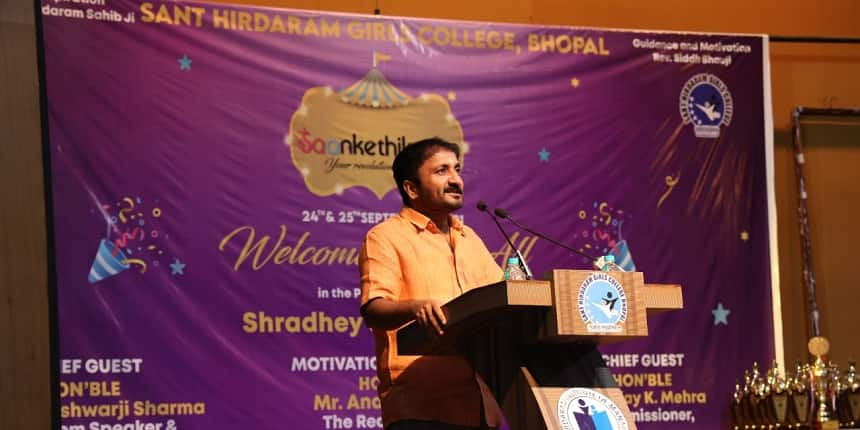Online education has a long way to go: ‘Super 30’ founder
Press Trust of India | June 6, 2022 | 10:58 PM IST | 2 mins read
Kumar said that the scientists had started working on the use of artificial intelligence to make online education more receptive and absorbing.

DUBAI: The COVID-19 pandemic has brought about immense changes in the field of education and online education still has a long way to go to cater to the needs of millions of students across the globe, ‘Super 30’ founder and mathematician Anand Kumar has said. Speaking at ‘Salaam Bahrain’ programme at the Indian School in Bahrain, Kumar said that the impact of the COVID-19 pandemic was devastating across the globe, more so on the young minds pursuing education, and it was not yet over.
The topic of his talk was ‘The future of education in the post-pandemic world’. “We don’t know if it will be last and when will another such pandemic strike us. So, we have to be prepared, as students cannot be kept away from education for such a long period,” he said, adding that the impact of COVID-19 is now manifesting through huge learning gaps. “Though the situation demanded online education, we were not fully prepared for that due to glaring socio-economic disparities,” said Kumar, who has been coaching underprivileged students in Bihar for nearly two decades for JEE-Advanced, the entrance exam for the Indian Institutes of Technology. He also said that while online education’s demand has grown and would grow further, the value of good teachers would also increase.
Also read | Space short, MBBS students of UP medical college allege they took turns to go to class
“Now, online teaching means that the best teachers will be in demand and accessible. The ultimate objective of teaching is to ensure how much the students are able to absorb. It is where the role of more scientific innovations will come and researchers are working on making it more and more absorbing for the students,” said Kumar in the presence of a large gathering of educators and Indian community members. “Just as a film keeps the audience thoroughly absorbed, the classes also need to do that by making them entertaining and gripping,” he added.
Kumar said that the scientists in Japan and other advanced nations had started working on the use of artificial intelligence to make online education more receptive and absorbing. “It can map the learning outcome of students to make proper changes to suit students’ needs. The role of teachers will, however, not decrease; rather online education will be a supplement to it to help students in all possible ways and reduce the learning gaps. This will require a lot of fine-tuning and by using the technology and teachers, it can help a great deal to prepare us for future challenges,” he added.
Follow us for the latest education news on colleges and universities, admission, courses, exams, research, education policies, study abroad and more..
To get in touch, write to us at news@careers360.com.